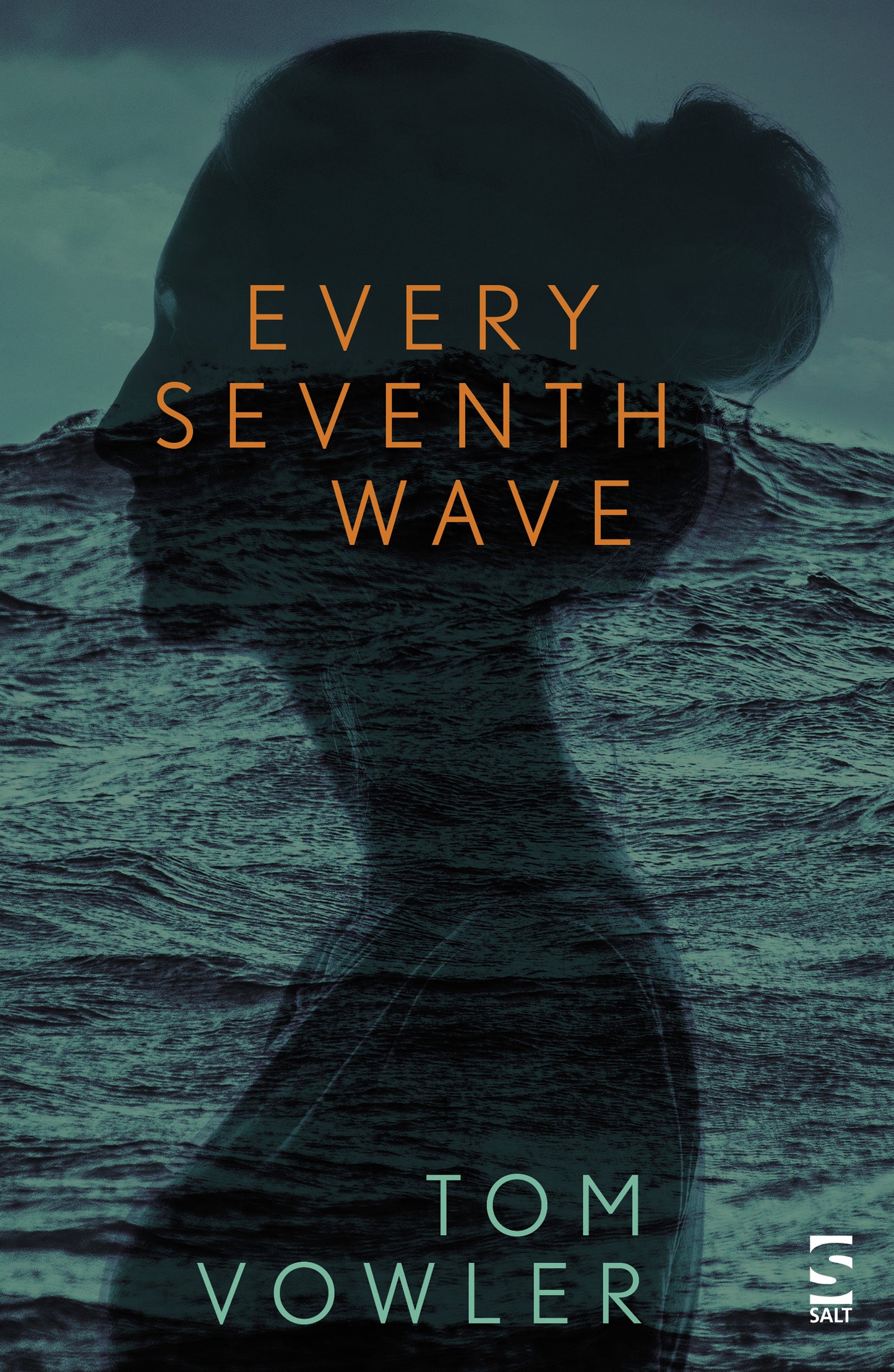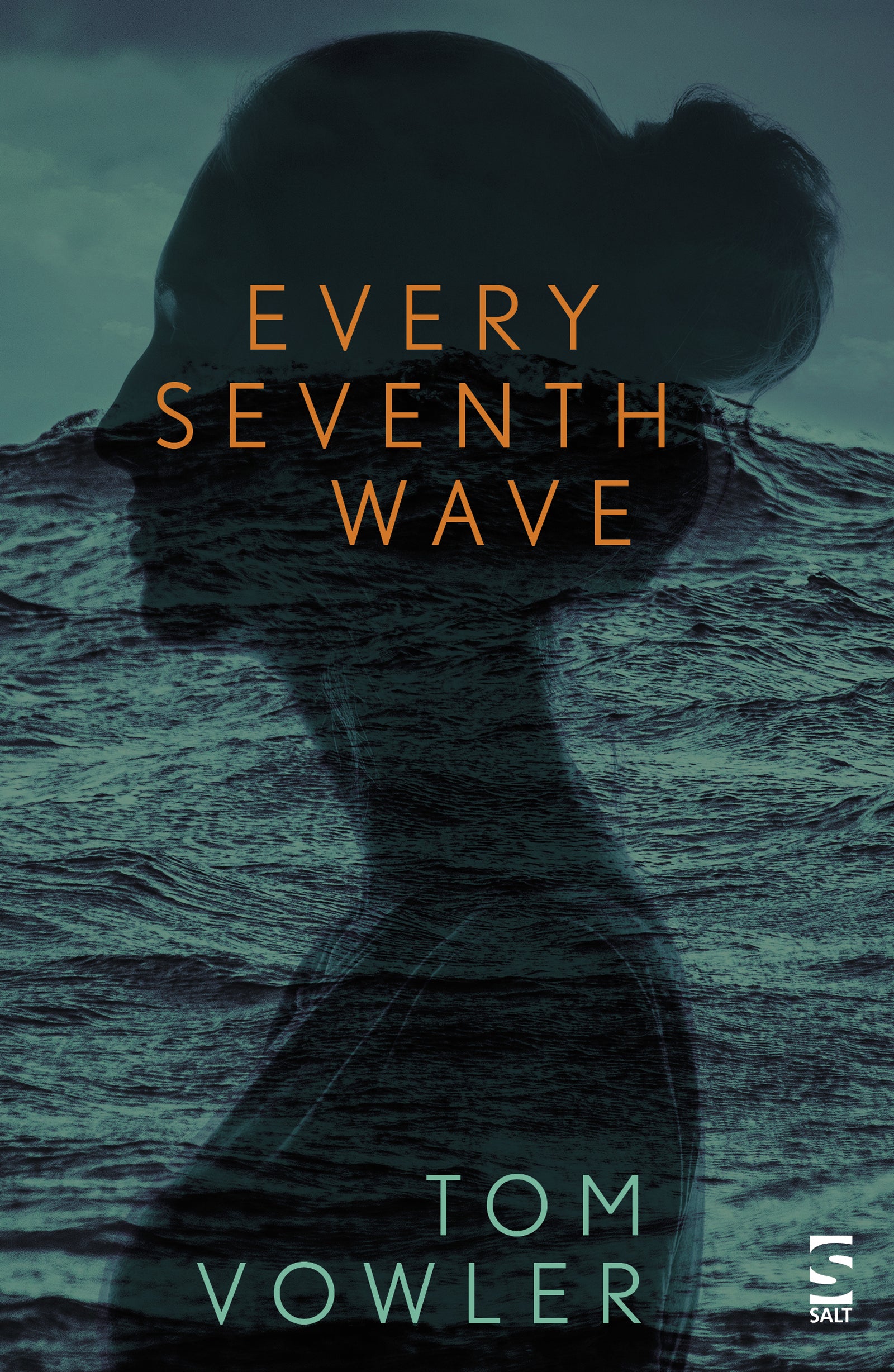Tom Vowler
Every Seventh Wave
Every Seventh Wave
ISBN:9781784632397
Couldn't load pickup availability
Synopsis
Every Seventh Wave has strong echoes of Fiona Mozley’s Elmet and Evie Wyld’s All the Birds, Singing. Strongly lyrical, the novel also serves as a literary thriller, with a suspenseful pace that builds to its redemptive finale. People-trafficking, fraternal love and violence are the fulcrum the novel turns on, the latter rippling outwards, sparing no one. Every Seventh Wave is a literary tale of the fates we tether ourselves to, how seemingly benign encounters can provoke both hope and devastation.
Praise for this Book
‘a stunning novel that walks a taut, fine line on one side of which is terror and on the other tenderness.’ —Wyl Menmuir
‘A moving and compelling story of love, loss and the possibility of redemption.’ —Ben Smith, author of Doggerland
‘Vividly written, morally complex, unforgettably moving.’ —Graham Mort
Reviews of this Book
‘I could describe Vowler’s latest book as a literary thriller about people trafficking. But the plot is merely a backdrop to the book’s themes: the precariousness of life; the legacy of trauma; what is fated for us or what we believe to be fated; and how easily this can all change ... A diverting read, compact and eloquently written.’ —Brigid O’Dea, Irish Times
‘Every Seventh Wave is a tenderly written and tense exploration of the shadowlands of the heart. Those on the margins of society are written sharply into lamp light and readers find themselves engaging with loss, betrayal and the complexities of lives lived out amongst the morally corrupt. This is a novel for now, a literary call for action as well as an unforgettable narrative bright with hope and redemption.’ —Rachael Smart, London Grip
‘It was this that made me appreciate more deeply the scenes where Anca faces the prospect of drowning. Each of the characters is, in a way, caught in the riptide of the life they have ended up with. The author is uncompromising in his portrayal of the consequences of choices made; the waves keep coming whatever breakers are built. A disturbing yet satisfying tale that both appals with its harsh truths and engages the reader. An impressive and affecting story that I recommend.’ —Jackie Law, Neverimitate
Praise for Previous Work
‘One of the most absorbing novels I've read in years. Brilliantly crafted, impeccably researched, with a precision-layered structure, Vowler provides us with a moving psychological portrait of the way trauma lives on in the present. Written in Vowler’s beautifully cadenced, poised style, I was, appropriately, captivated.’ —Ray Robinson
‘One vividly imagined and intensely realised scene follows another, each one ratcheting the tension, as we are led back through time, and deeper into Stephen’s memories. Almost every page has the sort of perfect sentence or paragraph that makes you want to elbow the stranger next to you on the train, point with a stubby finger, and say: “Read that. Just read it.”’ —Anthony McGowan
‘An absorbing, thought-provoking novel about past pains resurfacing, brought to life through compassionate prose.’ —Jonathan Lee
‘An immensely accomplished debut novel, strongly but sensitively written, this psychological thriller plays out like the best of Greek tragedies, against - and mirrored by - the dark beauty of Dartmoor. These characters slip under the skin of the reader and don’t let go until their clever, gripping, memorable story is told. Vowler’s prose is simply lovely, a pleasure to read. Highly recommended.’ —VAnessa Gebbie
‘Much more than crime fiction, What Lies Within is unique not just for its sharp psychological insights, but for the moral engine that drives the plot: a deep respect for, and anger on behalf of, women.’ —Melissa Harrison
‘Tow Vowler handles the female voice with remarkable sensitivity. If there was a false note anywhere in speech, action or motivation, I failed to spot it. He is also plainly a writer in love with both words and the almost primaeval wilderness of the more remote stretches of Dartmoor, deftly deploying descriptive passages that capture the essence of the place and the moment without overbalancing the narrative.’ —Vulpres Libris
Product Details
Extent: 320pp
Format: Paperback
Publication Date: 01-Apr-21
Publication Status: Active
Subject: Modern & contemporary fiction (post c 1945)
Trim Size: 198 x 129mm


